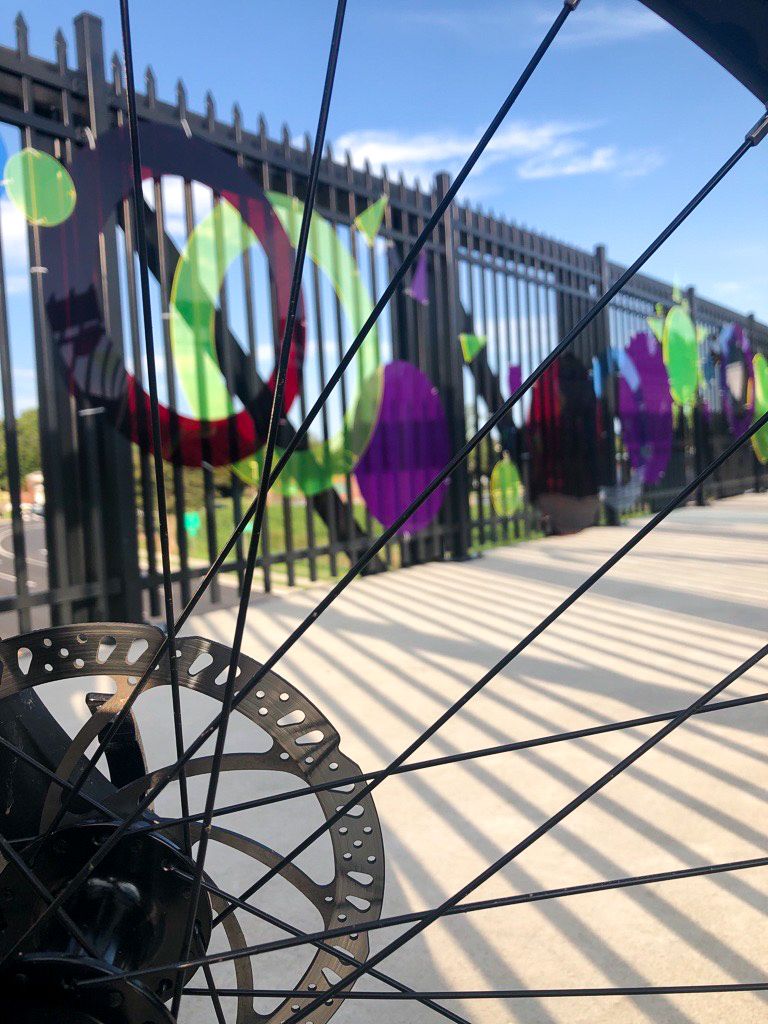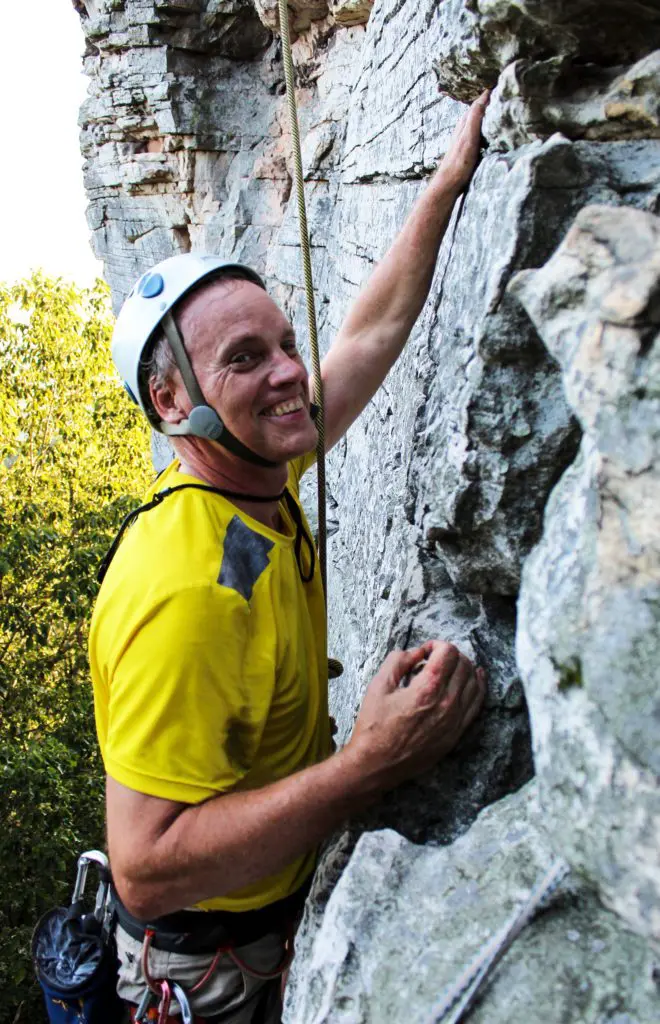
Gene Whitehead has always loved outdoor adventure. As a kid growing up on Long Island, Gene started biking young as a way to get around town. By the time he was 20, he found adventure in motorcycles, which he loved for about twenty years. Then, around 40, he rediscovered his love for biking through mountain biking. He says that being on a bicycle is freeing – “like being a part of the environment.”
For twelve years, Gene pushed his limits and explored the world of mountain biking (and beyond!). Then, in 2008, he started to experience some issues with his vision. However, he wasn’t ready to give up on mountain biking so easily. Gene continued to bike unassisted for a few years despite his changing vision, but the need to reduce his speed on the trails made mountain biking increasingly difficult.
In 2012, Gene became legally blind, and put his biking on hold. But in 2017, when the opportunity arose to try adaptive cycling through Roswell’s adaptive cycling program, Gene jumped at the chance. He was able to take paratransit to arrive at the Big Creek Greenway or Alpharetta Greenway. Gene says there are generally two adaptive cycling options for those with visual impairments. One option is to ride a bike following a guide who calls out directions to the cyclists. Gene said that this is how he hikes, but it’s not his preferred method for cycling. Instead, he opts for the second option – tandem biking!
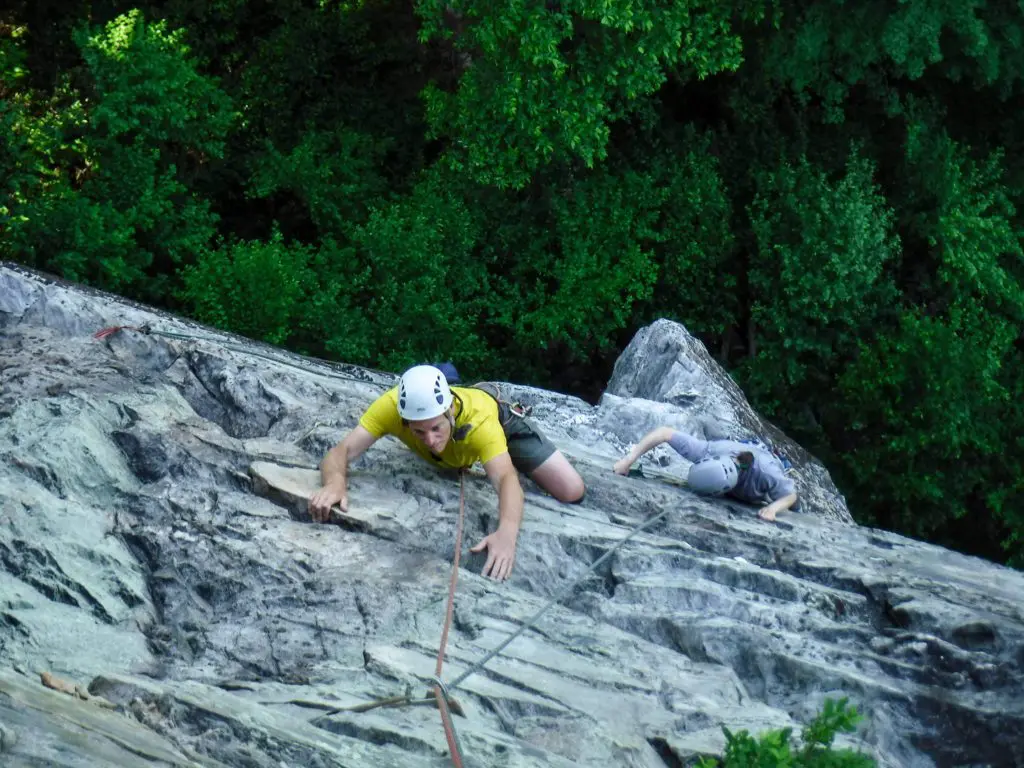
For Gene, tandem biking means that he sits on the back seat – known as the “stoker” position – while a seeing person sits in the front seat – known as the “pilot” position. Understandably, Gene says that tandem biking when you have a visual impairment can be scary because you have to place a lot of trust in your pilot. If you’re looking to use a tandem bicycle for adaptive cycling, Gene says “communication is key.” You need to communicate continuously with your pilot and they with you to make sure that everyone is comfortable and confident! Eventually, Gene says, you learn to become one with the bike, feeling when you need to turn and lean as you go.
While Roswell’s adaptive cycling program is not currently available, there are other programs you can check out if you’re interested in trying adaptive cycling!
Types of Adaptive Bicycles
Are you looking to try out adaptive cycling? Whatever your need, there are many options for adaptive bicycles! Check out some of the options below to see what might be the right fit for you:
Tandem Bicycles
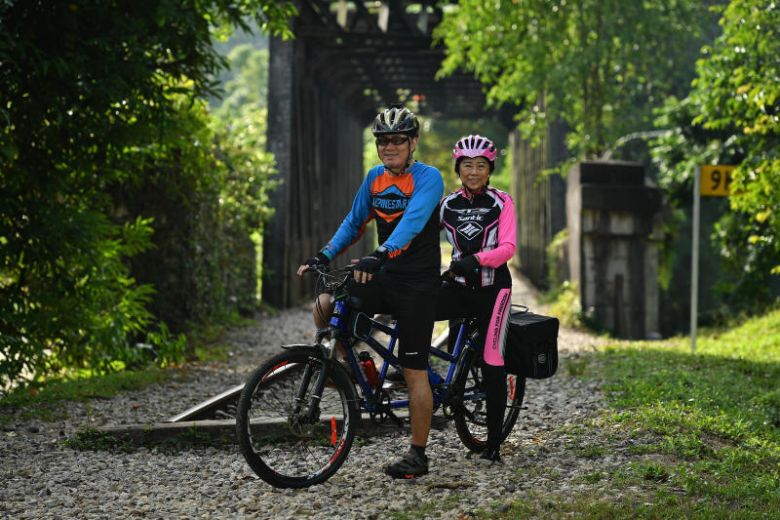
There are two types of tandem bicycles. The most common (and the kind that Gene uses to bike) is the tandem that has two wheels and two seats, with one seat behind the other. These bikes are upright, so they will require some balance.
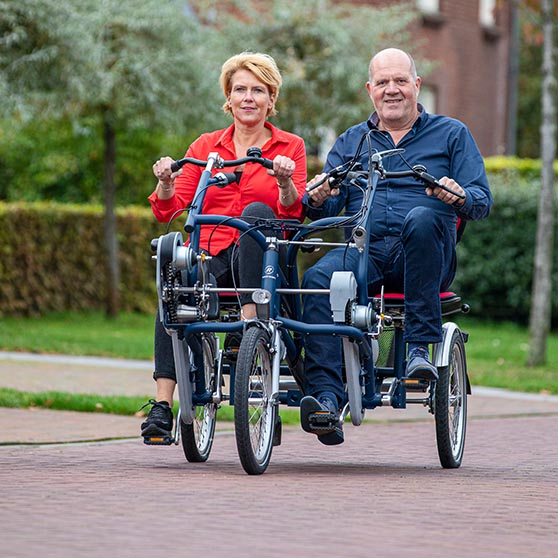
There are also side-by-side tandem bicycles that have three or four wheels. They can either be upright, as with a regular road bike (though these are less common), or they can be recumbent-style. If you are more concerned about balance, a recumbent, side-by-side tandem may be a better option than the tandem bikes with one seat behind the other.
Tadpole Trikes
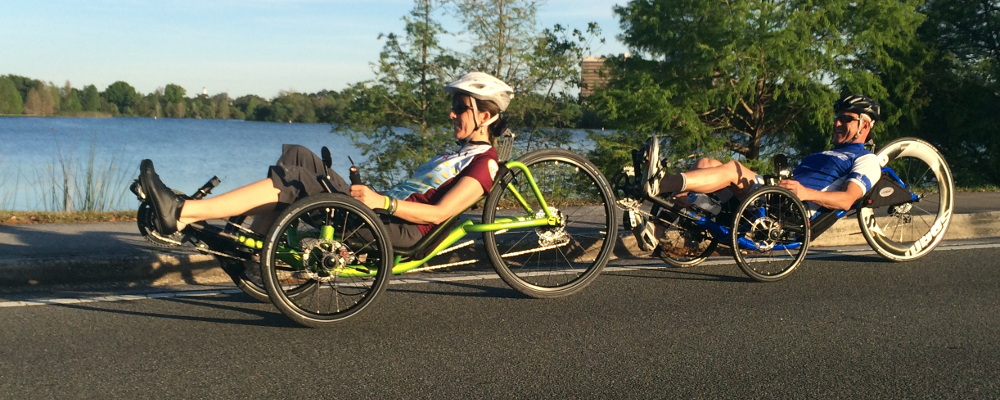
Tadpole trikes have two front wheels that steer with one wheel in the back. They are recumbent-style and tend to be very light. If you are looking for stability and weight balance, tadpole trikes are a great option.
Delta Trikes
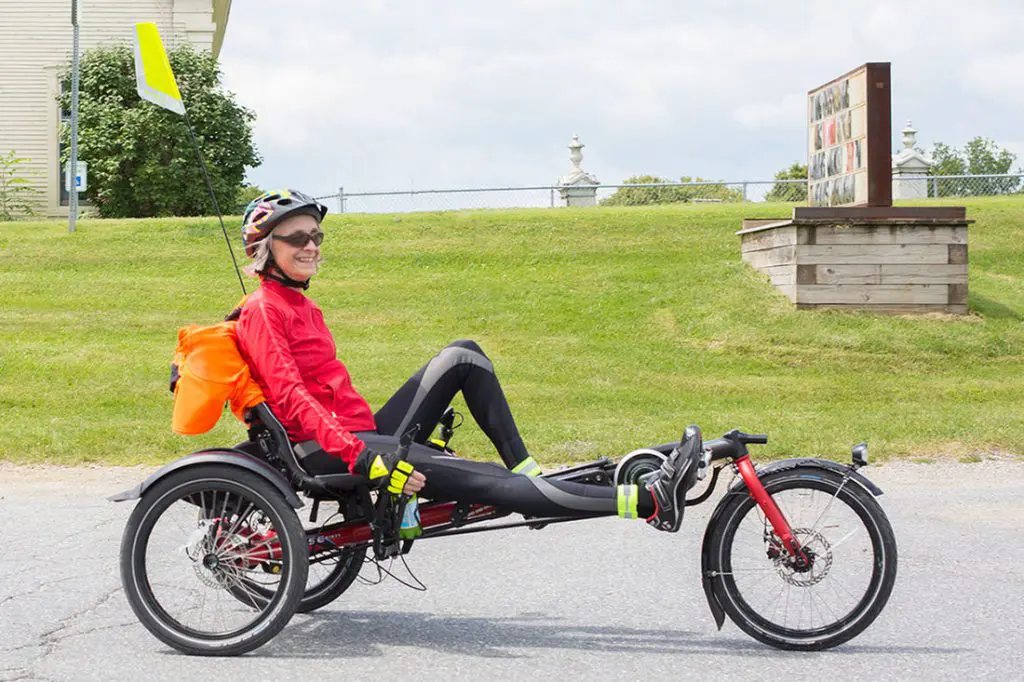
Delta trikes are similar to tadpole trikes, but they have one wheel in the front and two wheels in the back. They are also a recumbent-style. Delta trikes offer great maneuverability. And, if mobility is a concern for you, delta trikes are generally easier to get in and out of than tadpole trikes.
Handcycles
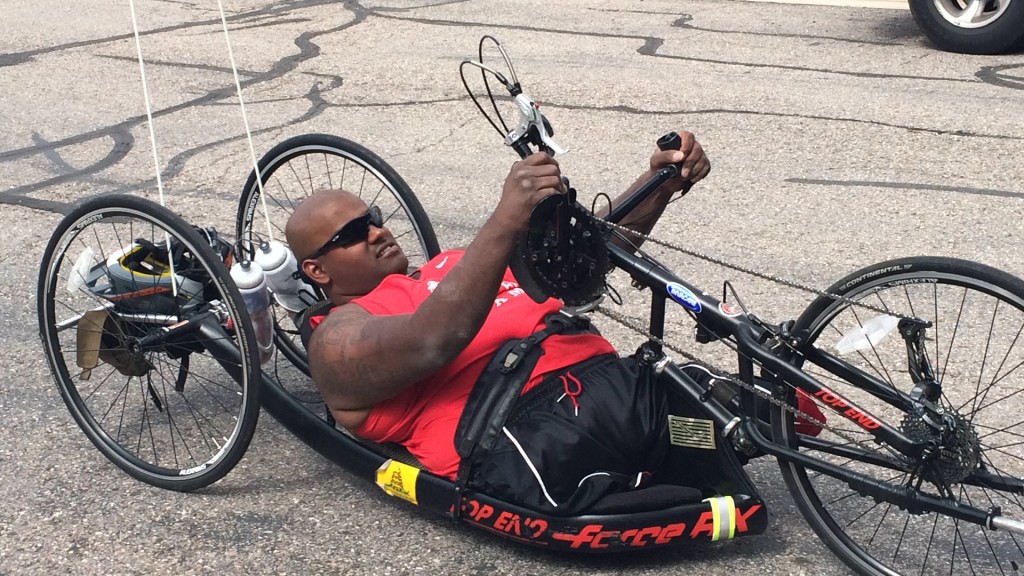
If you need an adaptive cycle that doesn’t require the use of your legs, there is a cycle for you, too! Handcycles allow riders to bike by using their arms to operate hand cranks. They are recumbent-style bikes and usually have two wheels in the back and one in the front (though there are variations that have two wheels in the front and one in the back). There are also variations of handcycles that allow for a wheelchair user to hook their chair up directly.
E-Bikes
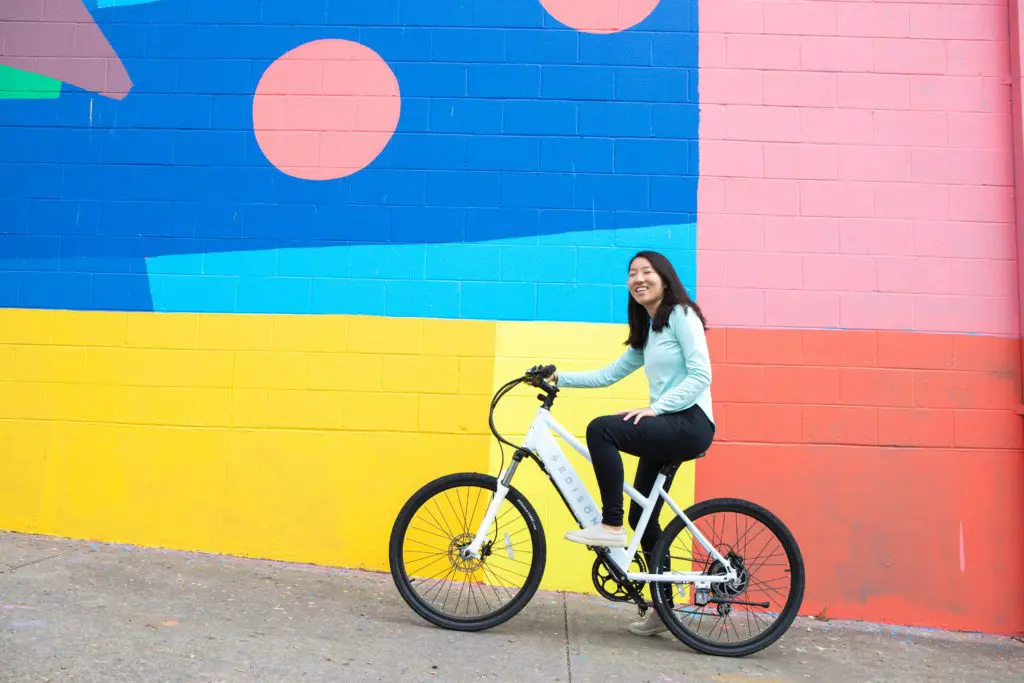
If you’re looking for a biking experience that gives you a little assist, e-bikes may be for you! There are tons of variations of e-bikes – there are even recumbent options!
Where can you access adaptive bicycles?
Adaptive bicycles are diverse and their prices vary. Costs can range from $400 for a typical tandem bicycle to nearly $2,500 for a specialized delta trike. So, if you’re just looking to try out adaptive cycling without the commitment of a big-ticket purchase, here are some places you where you can find adaptive cycles on the low:
Catalyst Sports offers opportunities to participate in a variety of adaptive sports, ranging from rock climbing to cycling. They have various adaptive bicycles that are available for rent here. They offer group mountain biking and road biking to give you the chance to meet other adaptive cyclers. Plus, if you’re not sure what adaptive bicycle is right for you, they also offer professional bike fittings!
Georgia Blind Sports Association offers a wide array of sport opportunities, including kayaking, baseball, audio darts, hiking, and cycling. They have tandem bicycles available to rent. And, if you’re a more serious athlete, they have sent a number of athletes to the Paralympics!
Atlanta Bicycle Barn offers e-bike rentals in the heart of Atlanta.
Atlanta Adventure Tours provides tandem, acoustic, and e-bike rentals at Stone Mountain Park.
If you don’t need an adaptive cycling experience, how can you support those who do?
- When driving, look carefully for bicycles in bike lanes! Adaptive bicycles can be low to the ground, so take an extra look before you turn!
- Advocate for more insulated bike lanes and bike paths. Insulated bike lanes and bike paths are generally safer experiences for cyclists, whether participating in adaptive cycling or not!
- Respect separated trails. If you’re at a trail that has bike trails that are distinct from hiking trails, respect the separation so that those who are cycling or hiking adaptively on the trails don’t need to navigate around a rouge pedestrian.
However you cycle, join us for Biketober! To participate, all you have to do is:
We have tons more prizes, including drawings for restaurant vouchers, bike gear and more.
For more information, check out ATLBikeChallenge.com
